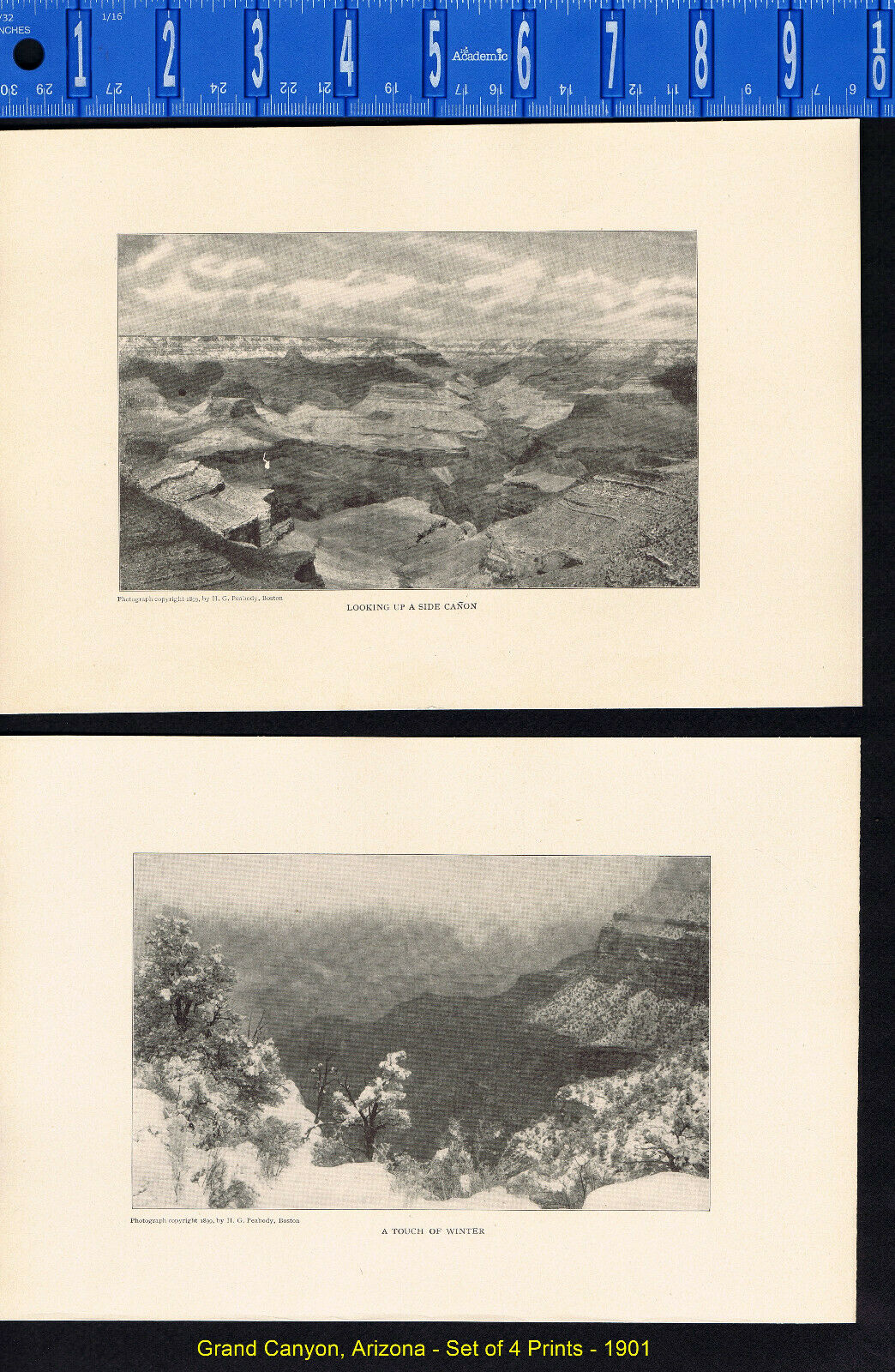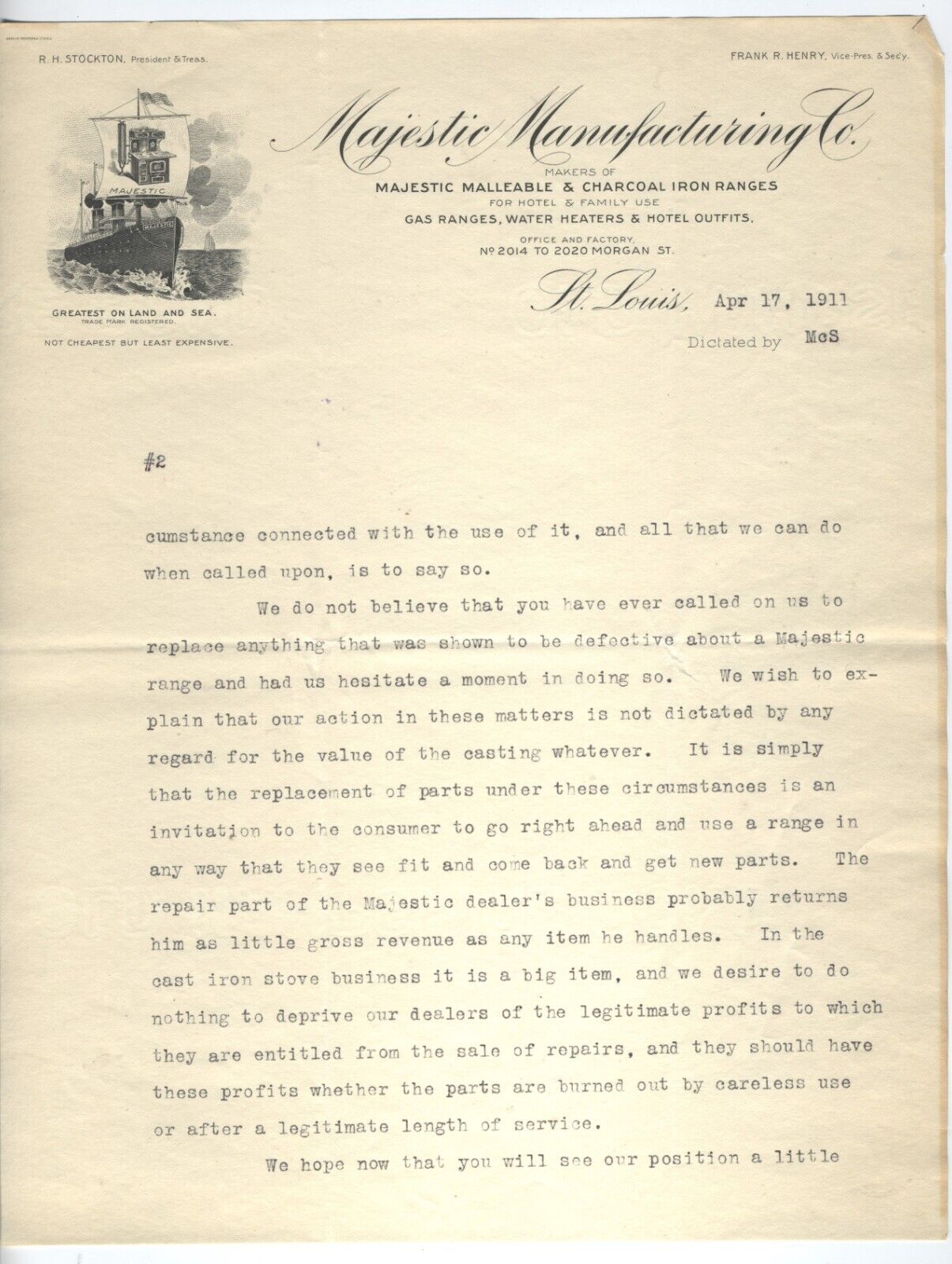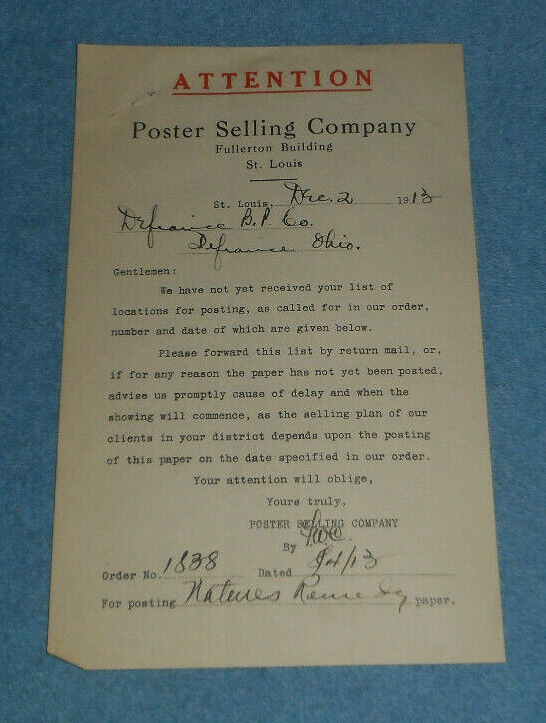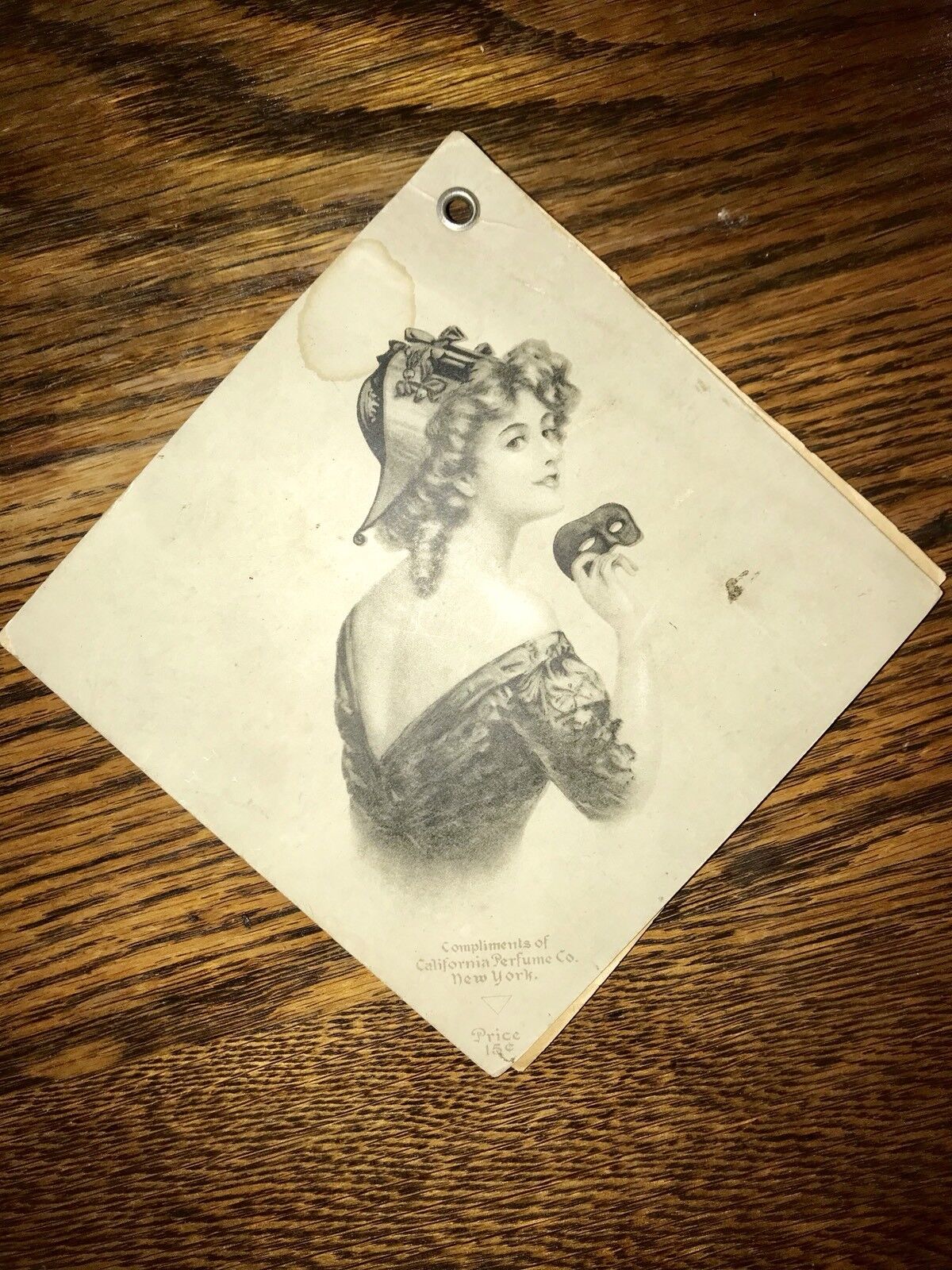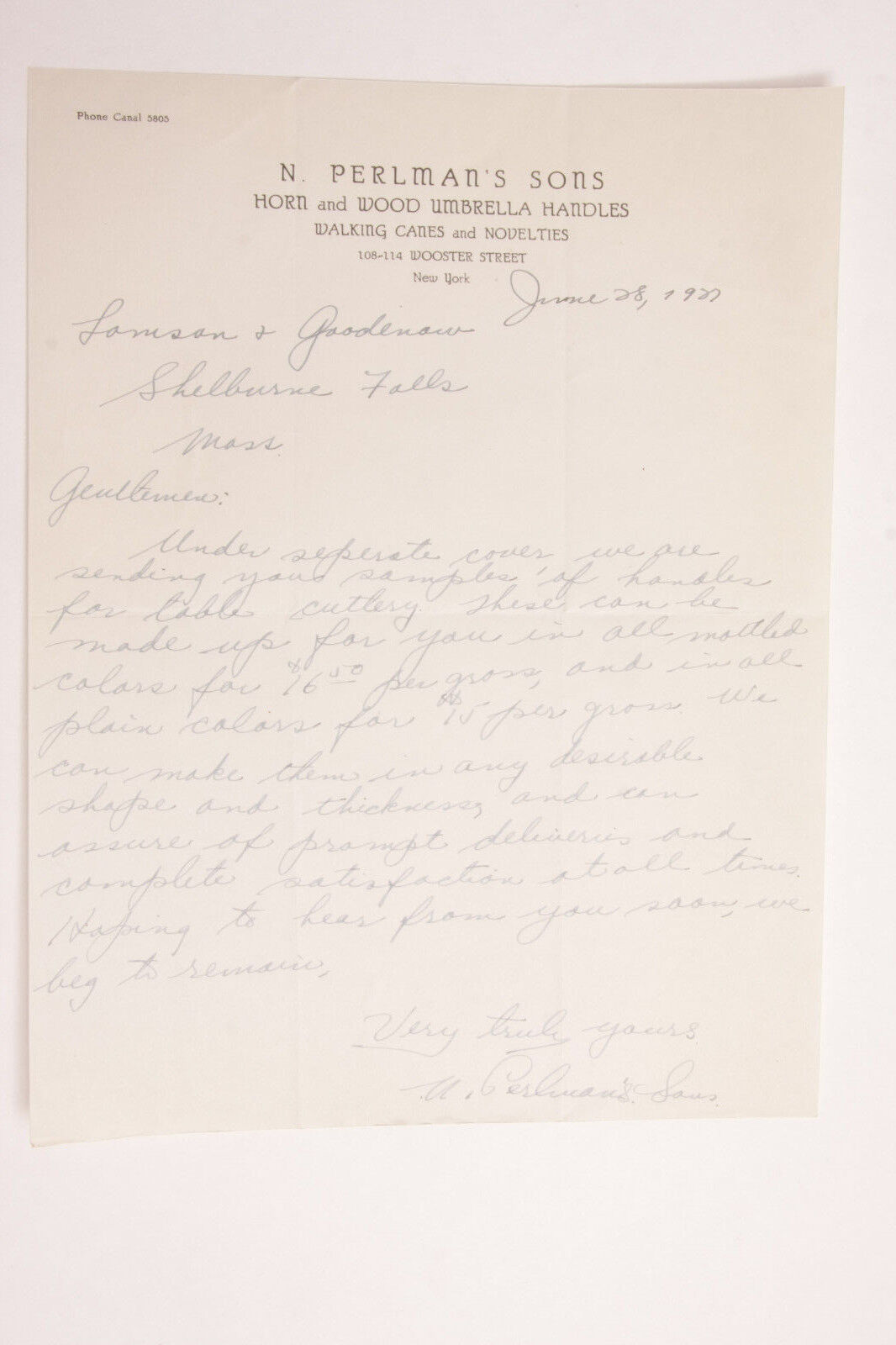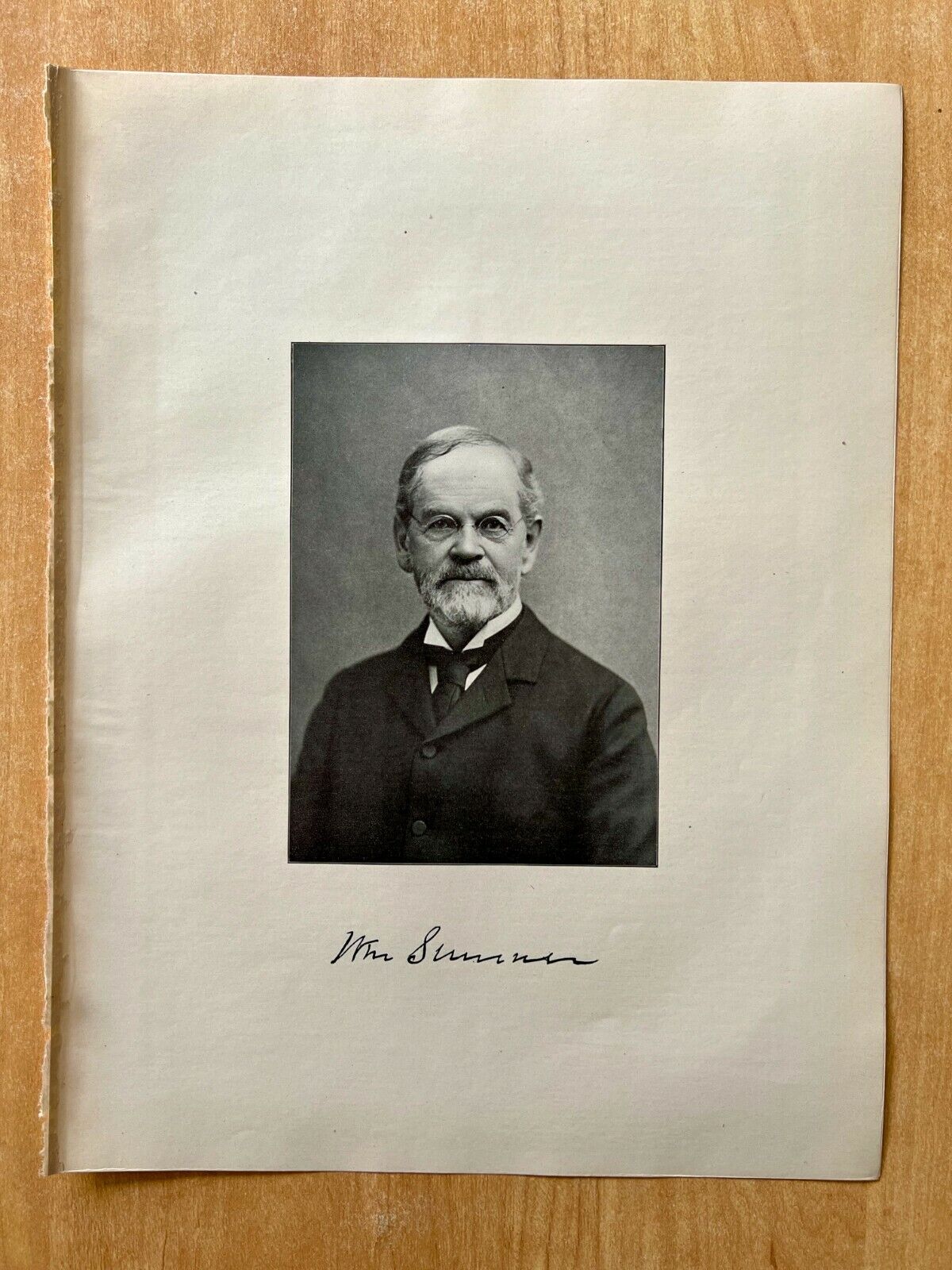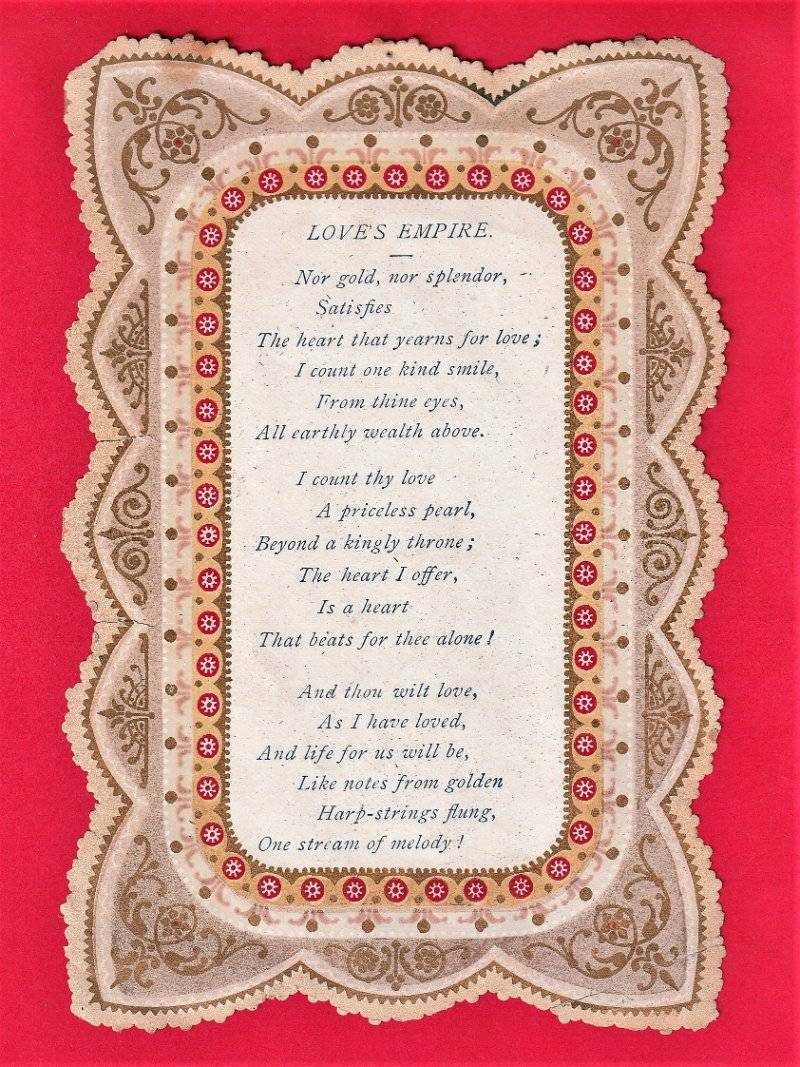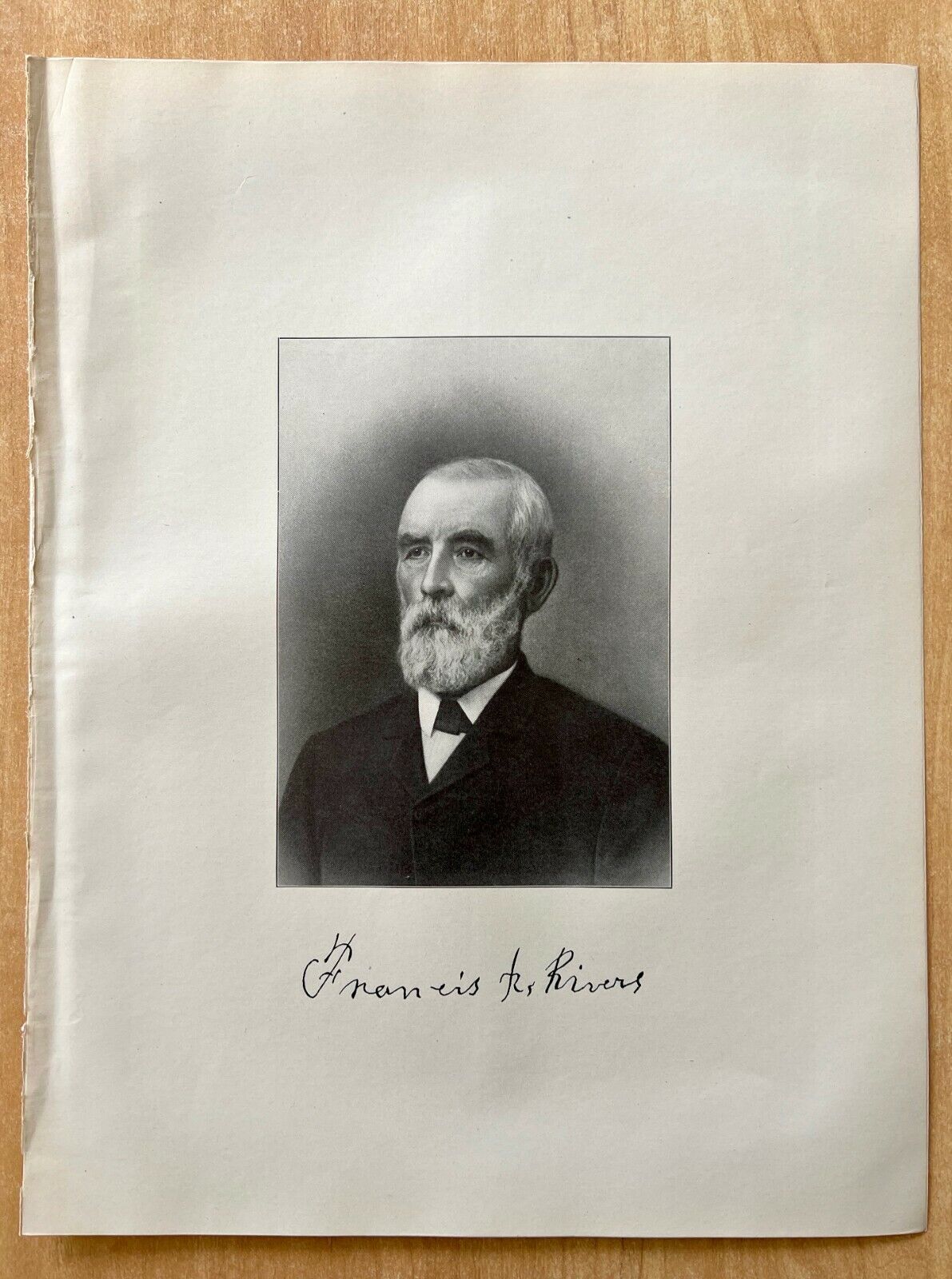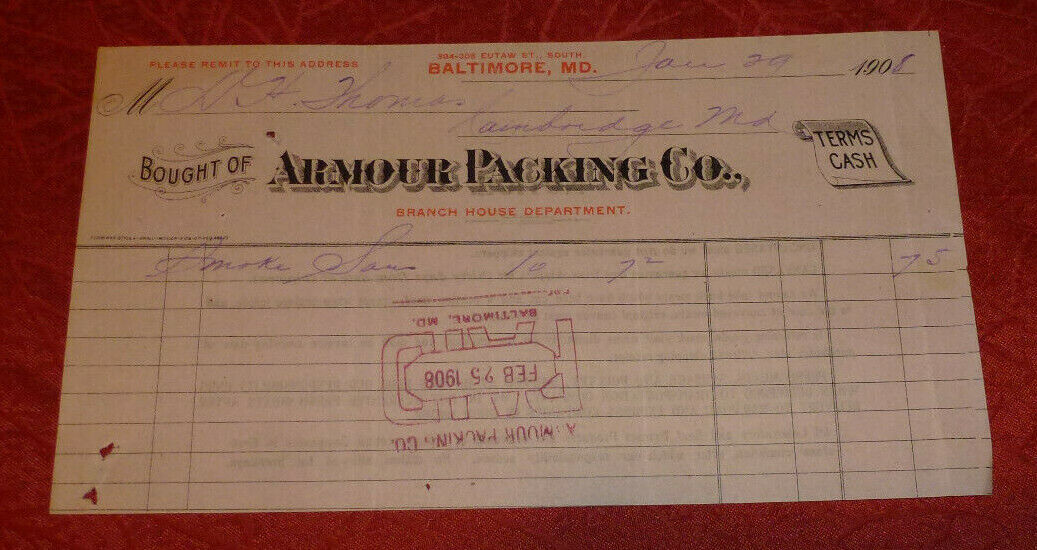-40%
Views of the Grand Canyon, Arizona - Lot/4 1901 Prints
$ 6.85
- Description
- Size Guide
Description
British Parliament 1925 Vintage LithographViews of the Grand Canyon, Arizona - Lot/4 1901 Prints
A lot of four vintage
1
20+
-year old
b/w
half-tone prints
depicting views of the Grand Canyon
- A glimpse of the inner gorge from the rim
- Looking toward the canyon across the plateau
- A touch of winter
- Looking up a side canyon
From original photographs by Henry Greenwood Peabody
Henry Greenwood Peabody (1855-1951), photographer, lecturer, and publisher of educational slides and films, enjoyed a remarkable career spanning nearly sixty years. Peabody produced thousands of photographs, slides, and films documenting the American landscape, worked in virtually every photographic process, delivered lectures describing the scenery that he so lovingly photographed, and published books that visually described the landscapes and scenery in which he specialized.
Peabody was born in St. Louis, Missouri, the son of a minister. He attended Washington University in St. Louis, the Pennsylvania Military Academy, and Dartmouth College, where he graduated in 1876. It was while a senior at Dartmouth that Peabody first became interested in photography, producing views of the Dartmouth campus and scenes along the New England coast.
After graduation, Peabody spent a year at the Massachusetts Institute of Technology studying architecture, electricity, and physics. He then went to work briefly as an engineer for the Western Electric Company in Chicago and New York. In 1879 Peabody set up a studio with Alexander Hesler in Chicago. While there, he met and married Dora Phelps, and the two relocated to Boston where Peabody opened a studio in 1886. He specialized in marine, landscape and architectural photography. He also served as the official photographer for the Boston and Maine Railroad and the Great Northern Railway, photographed the Americas Cup races, and published
Representative American Yachts
and
The Coast of Maine
. In 1899, he traveled to Mexico as photographer to the American Architectural Expedition; his photographs were published in
Spanish-Colonial Architecture in Mexico
by Sylvester Baxter. Peabody won numerous awards for his photography.
After Dora's death in 1898, Peabody needed security for his only child Mildred, and accepted a position with the Detroit Publishing Company, the largest postcard publisher in the United States. From 1900-1908 he served as field photographer on both the east and west coasts. Famed landscape photographer and company founder William Henry Jackson selected Peabody for this position because of the high regard in which he held Peabody's outdoor work. Because of copyright arrangements, many of the images Peabody created for the Detroit Publishing Company have been wrongly identified as those of Jackson.
Shortly after joining the Detroit Publishing Company, Peabody relocated with his young daughter to Pasadena, and his primary focus shifted to the landscape of the American West. He also traveled to England and France in 1908 to photograph cathedrals and other architectural monuments for the Horace K. Turner Company of Boston.
From about 1910 to the end of his career, Peabody produced photographs and slides of the American landscape for educational purposes. He published series of educational lantern and film slides and educational films with accompanying narratives that focused on national parks in the American West. He also delivered illustrated lectures that covered the Grand Canyon, the California Missions, Yosemite, and Mexico. By the early 1930s, he was making audio recordings designed to synchronize with the slide shows; he called these his "talking films" and they were included in his educational offerings.
Peabody spent his later years selling photographic equipment and photographing the landscape around his home in the San Gabriel Valley. He died at his home in Glendora, California, just one month shy of his ninety-sixth birthday.
Some typical age and handling wear
Full Print Size
: Approximately 6" X 8.5"
Prints are blank on reverse side
Condition
:
Excellent
-
Very Good
-
Good
-
Fair - Poor (but of historical interest)
Some minor handling wear and aging on this century plus-old print(s).
<< Click Here to See Other Historical Prints >>
Important: P/H is combined on multiple items that can be mailed together. BUT, with the new Ebay shopping cart, you
must wait for combined invoice
.
The Fine Print
U.S. residents
responsible for state sales tax.
International buyers
are responsible for all import fees and taxes.
Shipping costs:
Shipping costs on this item are
.99 in U.S.
.
My shipping costs are calculated on three factors - getting your item to you as quickly as possible, as cost effectively as possible, and as safely as possible. I pride myself in providing optimal protection. I use First Class or Priority Mail on most small items; Parcel Post on larger items; and Media Mail on books and magazines. You may request expedited shipment if you are willing to pay costs.
P/H is combined on multiple prints mailed at the same time. Please make your purchases from my auctions or store. I will send a combined invoice reflecting your savings.
The Nature of Prints & Engravings
: It was not until the 20th century that prints were commonly produced for the
itself. Prior to this, virtually all prints (and engravings) were produced as
illustrations
to be included in a manuscript, book, newspaper, or pamphlet. Therefore, a vast majority of original prints have been over the years removed from these original sources. Prints are produced using many different techniques:
relief printing
(woodcut & wood engraving),
intaglio printing
(steel & copper plate engraving, drypoint, aquatint, etc), and
planographic printing
(lithography, serigraphy, inkjet, laser, etc.). While the commercial value of a print depends on such factors as age, rarity, and condition, the real value of a print is its tie to its history and/or its esthetic beauty.
Item #721-HJ1234
